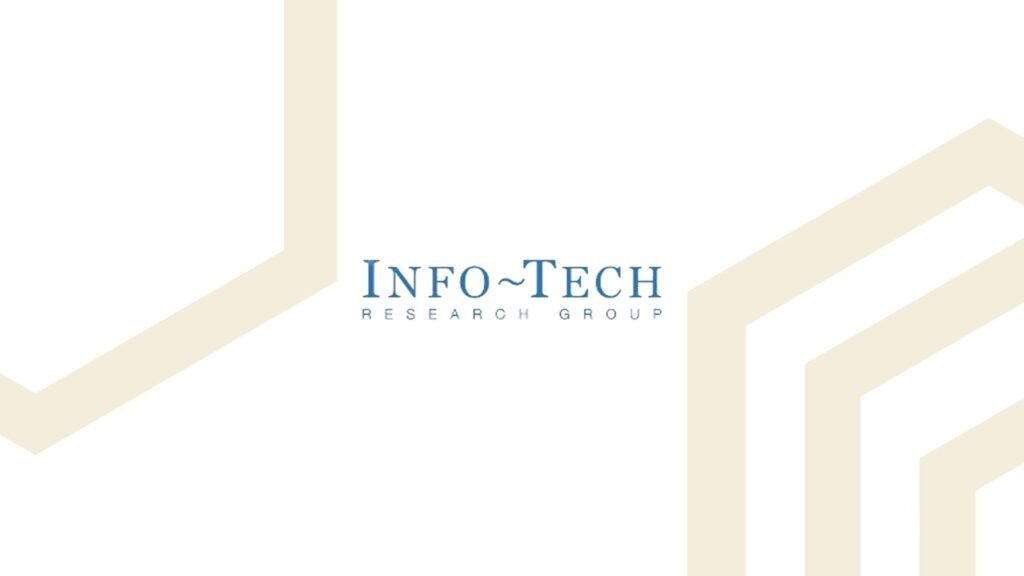A research report recently published by Info-Tech Research Group details how AI-driven sales automation can empower organizations to streamline operations, engage customers more effectively, and drive sustainable business growth in a rapidly evolving market.
TORONTO, Jan. 16, 2025 /PRNewswire/ – As sales teams struggle to keep pace with rising customer expectations and intensifying market competition, many organizations are being constrained by outdated, manual sales processes that hinder their growth and limit scalability. Global IT research and advisory firm Info-Tech Research Group reports that inefficient lead generation, inconsistent outreach, and missed opportunities are not only slowing down sales cycles but also preventing teams from reaching their full potential. To help organizations overcome these obstacles, Info-Tech Research Group’s newly published Sales Automation AI Summary report reveals how artificial intelligence (AI) is transforming sales strategies to streamline operations, enhance customer engagement, and unlock new opportunities for market expansion.
“AI-powered sales automation is no longer a future concept; it’s an immediate necessity for organizations aiming to stay ahead in today’s fast-paced sales environment,” says Rob Garmaise, Vice President of Artificial Research Intelligence at Info-Tech Research Group. “By automating time-consuming tasks and enabling more personalized customer engagement, AI solutions can empower sales teams to focus on high-value activities that drive performance and long-term growth.“
As sales environments become more complex and fast-paced, the firm advises that organizations must rethink how they approach growth and customer engagement. Info-Tech’s report emphasizes the need for innovative strategies that leverage AI to streamline workflows, enhance decision-making, and empower sales teams to build stronger, data-driven relationships with customers.
Key Benefits of AI-Driven Sales Automation from Info-Tech’s Sales Automation AI Summary Report
Info-Tech’s report highlights the following advantages that AI-driven sales automation offers to organizations seeking to enhance sales performance and stay competitive in a rapidly evolving market:
- Operational Efficiency: Automating routine, repetitive sales tasks, including lead generation, data analysis, and outreach, can free up sales teams to focus on relationship-building and closing deals. This approach reduces costs and boosts productivity across the sales cycle.
- Personalized Customer Engagement: Leveraging data-driven insights, sales teams can create hyper-personalized outreach based on customer behaviors and preferences, significantly improving lead engagement and conversion rates.
- Market Expansion: Advanced analytics uncover hidden market trends and identify new customer segments, allowing organizations to tap into previously overlooked opportunities.
- Optimized Sales Execution: Streamlined communication strategies help teams identify the best times and channels to engage prospects, ensuring timely and effective interactions that increase conversion potential.
- Real-Time Sales Coaching: AI tools analyze successful sales interactions to deliver personalized coaching, enabling sales representatives to refine their techniques and consistently improve performance.
“Manual lead generation, fragmented data, and inconsistent outreach remain some of the biggest obstacles for sales teams today,” explains Garmaise. “AI-driven automation is helping organizations overcome these challenges by streamlining complex sales processes, ensuring consistent messaging, and enabling more accurate forecasting especially during long and complex sales cycles.”
Featured AI Sales Automation Solutions:
The firm’s Sales Automation AI Summary report also highlights four AI-driven sales automation tools that support different aspects of the sales process:
- Instantly: Recommended for cold emailing across organizations of all sizes.
- Aktify: Best for lead nurturing in medium to large-scale organizations.
- CoPilot AI: Ideal for lead campaign management for small to medium-sized organizations.
- Balto: Designed for sales assistance in business-to-consumer (B2C) organizations.
By integrating AI-driven sales automation, organizations can unlock the full potential of their sales teams, including driving operational efficiency, delivering personalized customer experiences, and identifying new growth opportunities. Info-Tech Research Group’s Sales Automation AI Summary report not only provides actionable strategies for immediate improvements but also prepares organizations for future advancements in sales technology. According to the firm’s research insights, adopting AI tools today positions organizations to stay ahead of market shifts, foster long-term resilience, and achieve sustainable growth.
For exclusive and timely commentary from Info-Tech’s subject matter experts, including Rob Garmaise, an expert in the AI space, and access to the complete Sales Automation AI Summary blueprint, please contact pr@infotech.com.
About Info-Tech Research Group
Info-Tech Research Group is one of the world’s leading research and advisory firms, proudly serving over 30,000 IT and HR professionals. The company produces unbiased, highly relevant research and provides advisory services to help leaders make strategic, timely, and well-informed decisions. For nearly 30 years, Info-Tech has partnered closely with teams to provide them with everything they need, from actionable tools to analyst guidance, ensuring they deliver measurable results for their organizations.
To learn more about Info-Tech’s divisions, visit McLean & Company for HR research and advisory services and SoftwareReviews for software buying insights.
Media professionals can register for unrestricted access to research across IT, HR, and software and hundreds of industry analysts through the firm’s Media Insiders program. To gain access, contact pr@infotech.com.
For information about Info-Tech Research Group or to access the latest research, visit infotech.com and connect via LinkedIn and X.
SOURCE Info-Tech Research Group

